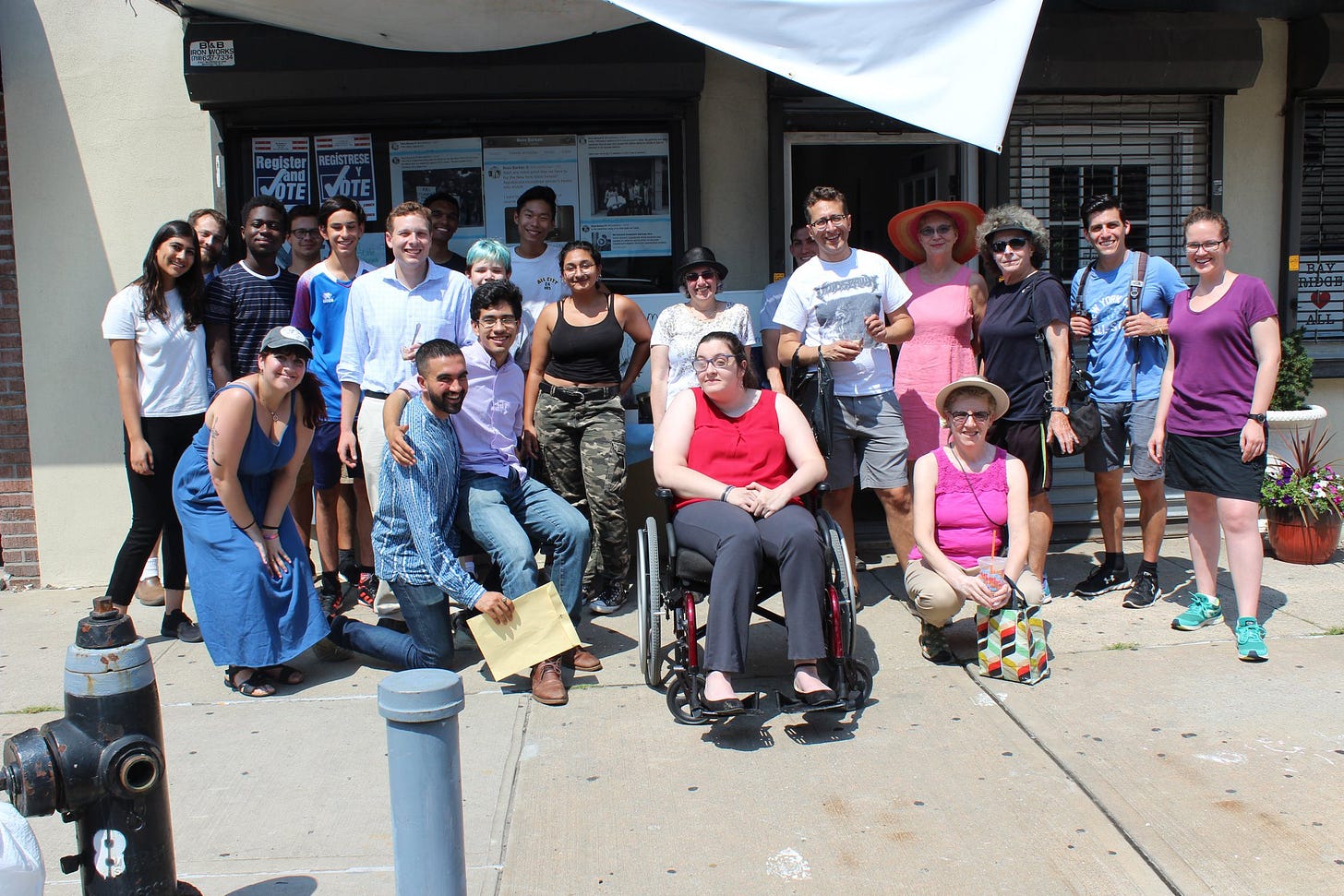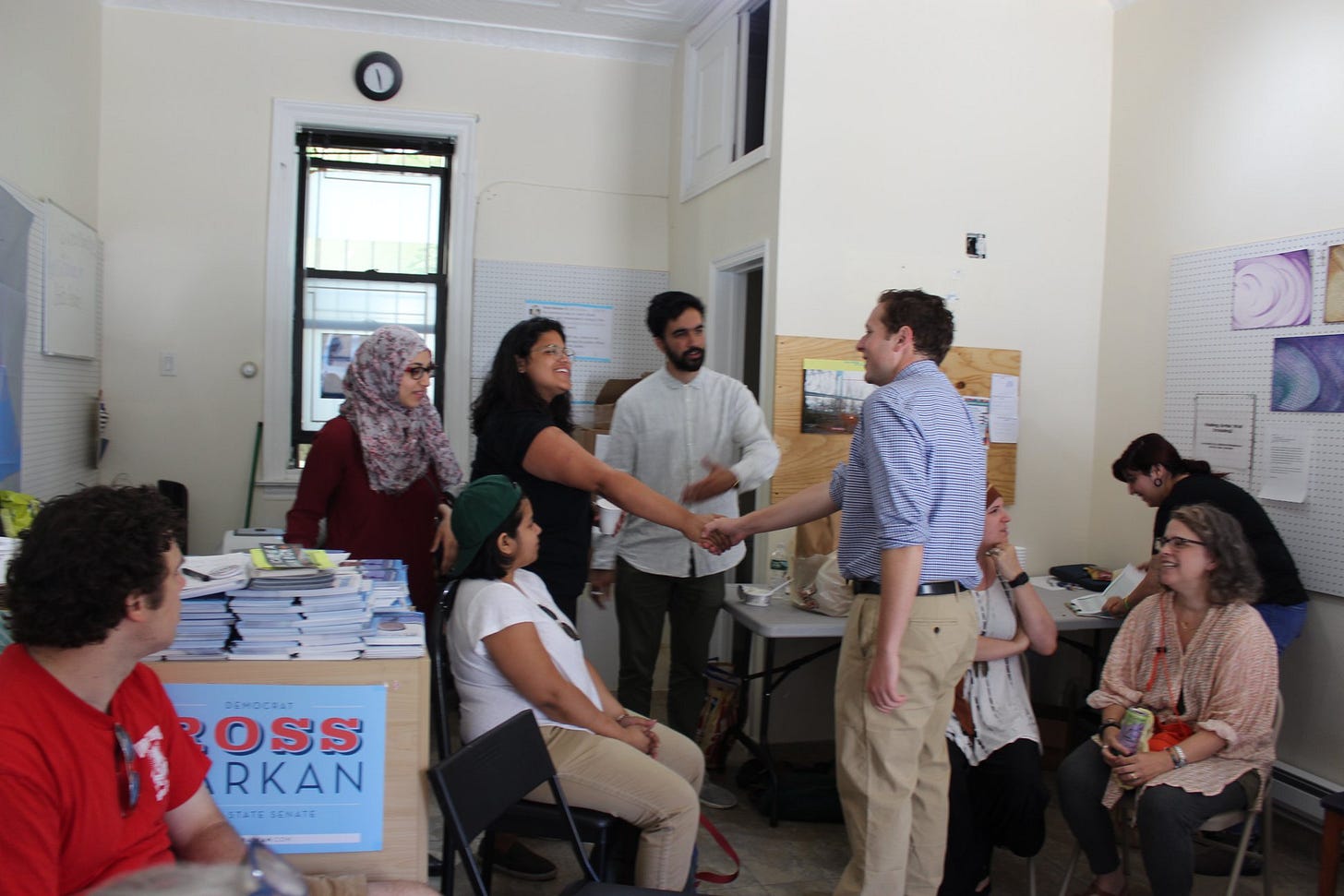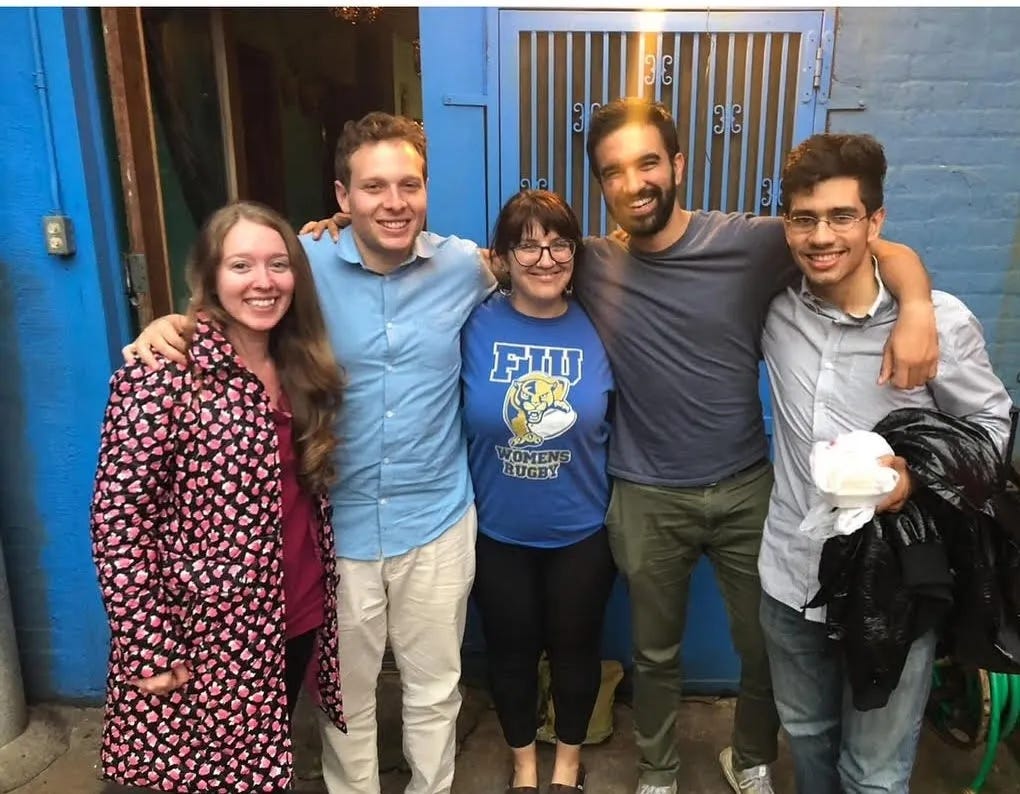The Novel Life
The arrival of Mayor Mamdani
There’s a trite observation to be made, in times like these, that reality seems to outstrip fiction. The novelist’s lament is that he can’t keep up—too many characters, too many twists, too many absurdities. And, occasionally, thrills. Though I’ve been sure of the outcome for several months, the events can still take on the heft of hyperreality; Mayor-elect Zohran Mamdani is, indeed, a sentence I can now type.
Rather than sum up, in political terms, what this has all meant—I’ve done this already—I’d rather offer a personal aside. It is rare to have the luck of knowing someone when they are anonymous and, later, world famous. My father used to say that much of life is luck and timing, and he wasn’t wrong. He was fond of Zohran, and I’m melancholy that he didn’t live long enough to see this day. He would have felt great pride. In the summer of 2018, when I was running for State Senate and Zohran was managing my campaign, my father would go and sit at the campaign HQ in Bay Ridge, smoking his tobacco pipe and organizing postcards to send to voters. He was a life-long leftist and found much to like in the young Muslim organizer I had hired to run my little underdog campaign. When I lost, and was quite despondent, my father told me that he was disappointed on my behalf but glad I could return to writing. That, he said, was what I was meant to do. Politics would be for Zohran. My father, who died in 2023, did live to see Zohran’s rise to the State Assembly. My mother, at least, has been around for all of it—Zohran polling at zero percent, Zohran as the Democratic nominee, Zohran as the mayor-elect. Zohran and my mother share a birthday, and that was always a source of amusement between them. Mira Nair and Mahmood Mamdani came to volunteer, too. They were proud of what Zohran was building in this curious pocket of Brooklyn.
None of the last forty-eight hours really surprises me, and all of it does. If I had to pick someone in my life who would end up the mayor of New York City, I would have likely said Zohran. He was, at twenty-six, fully formed as a political talent. I don’t think I taught him much of anything. Hiring him was a simple decision, his intellect and ambition and willingness to work plain, his ability to relate to others preternatural. His specialty was the field: knocking doors, recruiting volunteers, and keeping these ground troops as engaged as possible. We talked politics plenty, and I knew, at some point, he wanted to run for office himself. I recall, as we were driving back from a mosque visit in Bath Beach, that he asked me what I’d like to do if I got to the State Senate. Would I stop there? I said, at the height of my youthful hubris, I might like to be mayor—I don’t feel this way anymore—and Zohran was encouraging. He didn’t express the ambition himself. When he got to the State Assembly, two years later, I had a feeling he wouldn’t be there a very long time. What I could not have fathomed, in 2018, was the rapidity of the rise, how meteoric it would all be. A mayor-elect in 2025, an actual mayor in 2026? Perhaps, if all went well, he could make his move in the 2030s.
When Zohran went to Albany, I visited him there in 2022 and 2023. This second time, as we ate dinner, he was mulling a run for higher office. I was bullish. He had the talent to make a dent somewhere. We were both tired of politics as it had been practiced. We both thought the New York Democratic establishment was sclerotic and devoid of vision. We thought, perhaps, it might be the beginning of a new age. But the future, for all its promise, was still formless. Neither of us could truly imagine what was to come.
What I do believe has prepared 34-year-old Zohran for governing the largest and most complex city in America is his experience with people. This sounds sappy, or something out of a TED talk, but allow me an explanation. There has been no New York mayor in the modern age who has had the experience of, quite literally, speaking to thousands of individual voters. And I don’t mean at rope-lines or labor rallies or Democratic club dinners. I mean on those doors—knocking again and again, coaxing out the shy or giddy or furious local and trying, in the span of a crisp two minutes, to win them over. I am fairly certain no other major Democratic politician has conducted so many conversations with actual supporters of Donald Trump; in my campaign, and Khader El-Yateem’s in 2017, there were plenty of Democrats in Bay Ridge, Dyker Heights, Bensonhurst, Manhattan Beach, Marine Park, and Gerritsen Beach who voted for Trump. Zohran never shied away from them, nor condescended to them like other progressives might. He believed, fully, in the gospel of persuasion. He wanted me in the mosques, because so few other Democrats were willing to go there, but he, with equal fervor, wanted me in churches and synagogues. We did not win the Democratic primary, but we got 42 percent against the establishment Democrat who went on to defeat the Republican incumbent and become the state senator. Despite his reputation, in Albany, as a progressive, this Democrat, years later, refused to endorse Zohran in the mayoral primary and didn’t back him, in the general election, until the late summer. I think I know why. For those that so fiercely opposed us in 2018—unlike Zohran, I’m slower to forgive—this must be an especially disorienting moment. It seems neither Zohran Mamdani nor Ross Barkan vanished from public life.
For about a year after I ran, the political virus lingered within me. I wanted to give it another shot. There’s a fizzing high to a political campaign, and it takes a certain kind of arrogance to attempt one. I recall, in 2019, musing to people close to me about running for something else. Why not? I had learned from my mistakes. I could get the band back together, seek redemption, and find glory. A campaign is infused with a frontier spirit. You’re lighting out for new territory, and in the beginning there’s little to power you other than belief. Thankfully, though, the desire to run again leaked out of me. My father was right: writing was my calling, not Albany nor City Hall. If I had become a state senator, would I have published any novels beyond my debut? Would Glass Century exist? I don’t think so. As much as I value politics, still, my art comes first. I do not want to sacrifice it for anything. Even now, I lament how the political season has intruded on my goal to close out a draft of my new novel by year’s end. The fiction is getting crowded out, and I can’t keep letting that happen.
Next year, the Zohran Mamdani City Hall arrives. I plan to document it extensively—there’s a project I’ll announce soon pertaining to that—and cover it as I would any other, even with my obvious entanglements. I won’t pretend a failure is a success and I won’t lie to you. These are exciting and unprecedented times, and we must begin to make sense of them. I won’t shirk from that duty.





There was such a genuine high seeing the acceptance speech and knowing we're at that point, our peers, taking up the reins.
Even richer, I think, is how it can evoke the feeling you're describing here: a sharpened sense of personal purpose, in light of Zohran achieving his own.
Well done! Great back story.